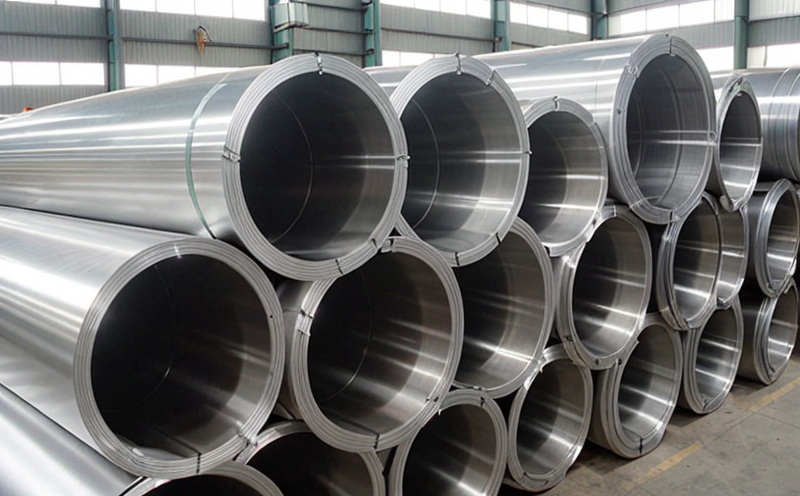IEC 60529 IP Testing (Ingress Protection for Dust & Water)
The International Electrotechnical Commission’s IEC 60529 standard defines the ratings to describe the protection provided by enclosures against access to hazardous parts and against foreign objects, including dust, water ingress, and other intrusions. The IP rating (Ingress Protection) is a two-digit code indicating levels of protection. This service specializes in testing materials used in marine and ship equipment for their resistance to environmental factors such as dust and water.
In the context of our services, we focus on aluminum materials commonly found in marine applications. Aluminum's unique properties make it an ideal choice for boat hulls, propellers, and various fittings where durability, lightness, and corrosion resistance are crucial. Testing these materials against IP ratings ensures they meet the necessary environmental standards to operate safely and effectively in maritime environments.
The testing process involves subjecting aluminum specimens to controlled exposure conditions that simulate real-world scenarios of dust and water ingress. This includes but is not limited to immersion tests, spray tests, and dry/wet cycles. The goal is to determine whether the material can withstand these environmental stresses without compromising its integrity or performance.
For our testing setup, we use state-of-the-art equipment that adheres to international standards such as IEC 60529, ASTM F2317, and EN 16778. This ensures the highest level of accuracy and reliability in our test results. Our facility is equipped with climate chambers capable of simulating various environmental conditions, including temperature ranges from -40°C to +85°C, humidity levels up to 98% RH, and pressure differentials that can mimic high seas conditions.
The testing procedure involves several steps:
- Preparation of the aluminum specimen according to specific dimensions and tolerances.
- Cleaning and degreasing the specimen prior to exposure.
- Subjecting the specimen to controlled environmental conditions for specified durations.
- Evaluating the specimen’s integrity after testing, including visual inspection and, if necessary, destructive testing.
The results of our tests are reported in accordance with IEC 60529 standards. These reports provide detailed information on the IP rating achieved by the aluminum material under test conditions, along with any observed changes or failures during exposure. This data is invaluable for quality managers, compliance officers, and R&D engineers responsible for ensuring that materials used in marine equipment meet stringent environmental requirements.
Our service also offers additional value through our technical expertise. We can provide advice on material selection, design considerations, and potential improvements based on test results. Our team of experienced professionals can help you understand the implications of different IP ratings and how they impact your product's performance in marine environments.
Industry Applications
- Boat hulls: Ensuring that aluminum used in boat construction is protected against water ingress, preventing corrosion and degradation over time.
- Propellers: Testing the durability of propeller blades to withstand harsh marine conditions, including saltwater exposure.
- Fittings and fasteners: Verifying the reliability of fittings and fasteners used in shipbuilding against dust and moisture infiltration.
- Marine electronics: Protecting sensitive electrical components from water damage through appropriate IP rating selection.
Our expertise in IEC 60529 IP testing for aluminum materials is particularly valuable for manufacturers, suppliers, and original equipment manufacturers (OEMs) operating in the maritime industry. By ensuring that your products meet the necessary environmental standards, we help you maintain a competitive edge and comply with international regulations.
Quality and Reliability Assurance
The quality and reliability of materials used in marine equipment are critical for safety and performance. Our IEC 60529 IP testing service plays a crucial role in this process by providing empirical data that can be used to enhance the design and manufacturing processes of aluminum components.
Through rigorous testing, we ensure that your products meet not only current standards but also future requirements as environmental conditions evolve. This proactive approach helps you stay ahead of regulatory changes and market demands. Additionally, our service supports continuous improvement by offering insights into areas where further enhancement is needed to achieve higher IP ratings.
We also provide certification services for compliance with IEC 60529 standards. This can be particularly beneficial if your company needs to meet specific contractual obligations or industry certifications. Our team works closely with you throughout the testing and certification process, ensuring that all necessary documentation is accurately prepared and submitted.
Environmental and Sustainability Contributions
In the context of environmental sustainability, our IEC 60529 IP testing service for aluminum materials in marine equipment offers several benefits. By ensuring that these materials can withstand harsh environmental conditions without compromising their integrity, we contribute to reducing waste and extending the life cycle of maritime products.
- Reduced Waste: Products that meet stringent IP ratings are less likely to fail prematurely due to environmental factors. This leads to lower replacement rates and reduced waste in landfills.
- Eco-friendly Design: Our testing service supports the development of environmentally friendly products by ensuring they can operate efficiently in challenging marine conditions.
- Regulatory Compliance: By adhering to international standards such as IEC 60529, we help companies comply with environmental regulations and reduce their carbon footprint.
We also offer training sessions for your team on best practices for material selection and testing. These sessions can be tailored to meet the specific needs of your organization, ensuring that your staff is equipped with the knowledge and skills needed to implement sustainable manufacturing processes effectively.





